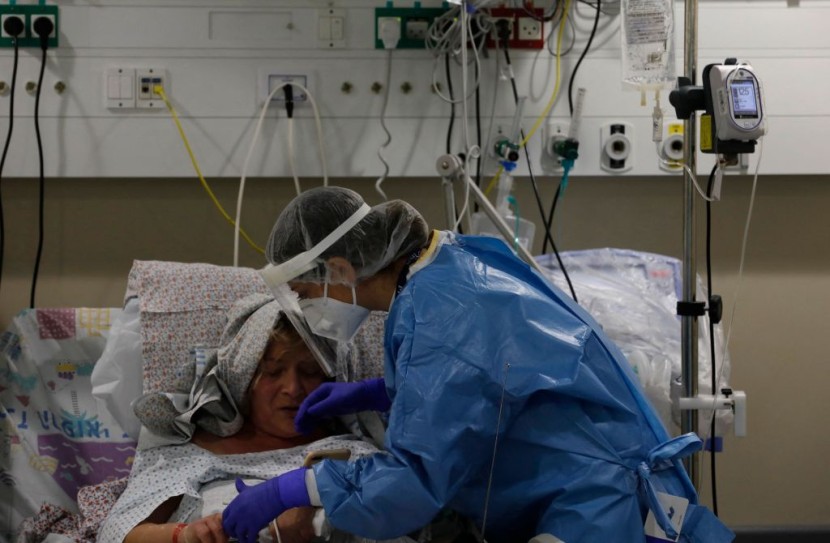
Israel will persist in offering a fourth COVID-19 vaccine shot despite initial research findings saying that it is not efficient to prevent Omicron infections, according to the country's senior health official.
Last month, the country began offering a fourth vaccine shot (or second booster) to high-risk groups of the society such as medical workers, people 60 years old and above, and individuals with suppressed immune systems.
On Monday, a preliminary study published by Sheba Medical Center indicated that the fourth shot increases antibodies to higher levels than the third shot. However, it is "probably" not enough to protect the body against the Omicron, a highly transmissible but mild variant of the COVID-19 virus, according to Reuters.
According to Israel Health Ministry Director-General Nachman Ash, the initial findings were "unsurprising to a degree" as he sees the second booster shot's benefits from a different perspective.
In an interview with Army Radio, Ash said that the Health Ministry sees that the fourth vaccine dose can protect from serious morbidity "especially for the elderly population" and for people who have a higher risk. "Therefore, I call on people to keep coming to get vaccinated," he said.
WHO: Repeat Booster Doses Not A Feasible Strategy
COVID-19 cases in Israel have risen dramatically due to Omicron. However, no deaths caused by the variant have been reported. Ash stated that the number of COVID-19 patients on ECMO machines - a measure of the most serious cases - has not risen. The official also predicts that COVID-19 cases in the country will drop in "another week."
"But we still have two or three difficult weeks ahead," Ash cautioned.
On Monday, Israel decided to bring down the mandatory quarantine period for COVID-19 patients to five days. The government also encouraged people to use home antigen kits to lessen the lines at public PCR testing venues. Such measures are expected to reduce the economic impact of the pandemic.
Recently, the World Health Organization said that repeat administration of booster doses of the original COVID-19 vaccines is not a feasible approach to combat emerging variants, as per Al Jazeera's report.
Second Booster Dose Needs Further Studies
Meanwhile, Dr. Peter Hotez, dean of the National School of Tropical Medicine, believes that a fourth dose of the COVID-19 vaccine would be too late to combat Omicron in the United States.
He believes the outbreak will have decreased by the time the dose receives FDA and CDC approval and immunization begins among health care providers.
"By the time we get an immune response and vaccinated health care providers and that's the group I suggested that we tried it for it will be three or four weeks from now and by then possibly the Omicron wave will have subsided substantially and we'll be having to worry about the next variant," Hotez said in a CNN interview.
The medical expert also cautioned that the final data from Israel still needs to be reviewed by US health experts before making any recommendations on treatment.
As of this writing, new COVID-19 numbers worldwide registered at 2,628,680, with a 7-day average of 2,862,311 based on Our World in Data.
Related Article : COVID-19 Around the World: How Different Countries Are Dealing With Omicron Surge in January 2022
© 2026 HNGN, All rights reserved. Do not reproduce without permission.








